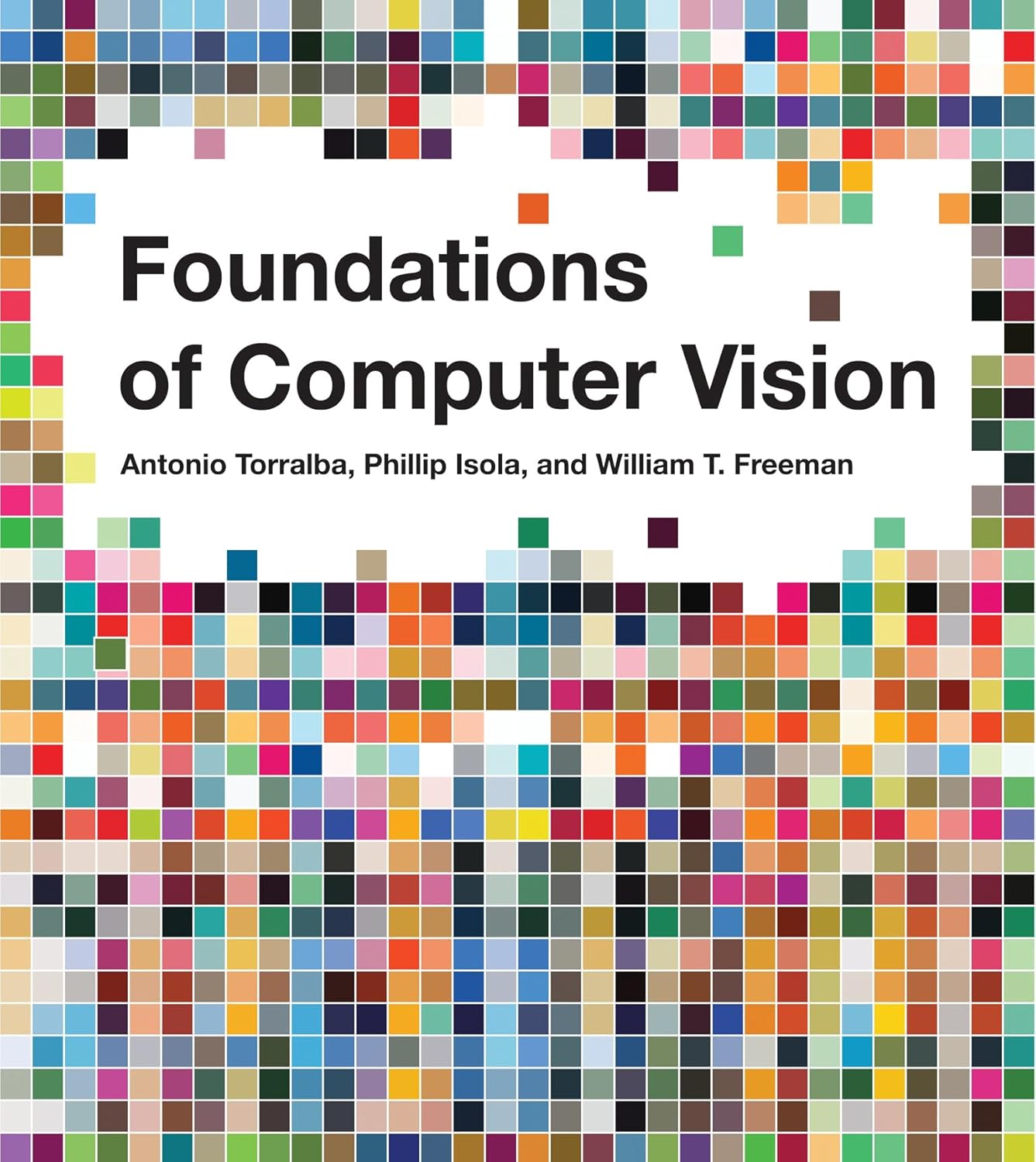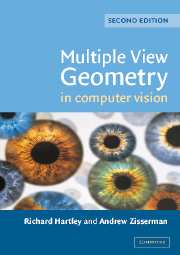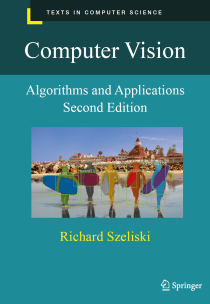CS 6501 3D Computer Vision (Fall 2025)
University of Virginia
Textbook
This course does not require any textbooks. The field of 3D computer vision is moving fast -- our major reading materials are research papers published at main computer vision conferences such as CVPR, ICCV, ECCV, and 3DV. The following textbooks are great references:
Pre-requirements
This courses assume basic knowledge in Linear Algebra, Optimization, and Deep learning. In particular, students should be familiar with topics including,
- Linear Algebra: matrix multiplication and inversion, rank, Singular Value Decomposition (SVD), etc.
- Numeric Optimization: iterative optimization (e.g. SGD), constrained optimization
- Deep Learning: common neural network architecture (e.g., MLP, ConvNets, Transformer), loss functions, optimizers, regularization, etc.
Grading
The final grades consists of paper presentation, paper reading reports, presentation feedbacks, and final projects
- Paper Presentation (30%)
- Role-playing paper presentation (Slides Template)
- Paper Reading (20%)
- Paper summary report (Deadline: Sunday at 11:59 p.m. before the presentation week; Template)
- Presentation feedback form (Deadline: 11:59 p.m. on the day of presentation; Template)
- Project (50%)
Late Days
You have 7 total late days to use across all assignments for the entire course. Each individual assignment has a maximum of 3 late days allowed.
- Any assignment submitted more than 3 days late will not be accepted, regardless of remaining late days
- Late day calculations are based on Gradescope submission timestamps, where even being 1 minute late counts as using 1 full late day
- After you have used all 7 of your late days, any additional late submissions will incur a 25% penalty per late day
- You do not need to provide any explanation when using your allocated 7 late days
Extensions for extenuating circumstances: If you have situations like medical emergencies that require deadline extensions, you must notify the instructor before the original due date. Deadline extensions will not be granted after the deadline has already passed.
Role-Playing Paper Presentation
A team of 2-4 students will prepare and deliver the presentation for each assigned paper. The presentation structure is as follows:
-
30-minute Presentation:
- Provide an overview of the paper, including its historical context. Identify where the paper fits within the existing literature by finding and briefly discussing one older paper cited by the current paper.
- Explain the main idea, key algorithm, and experimental results presented in the paper. The presentation should be clear and accessible to all students, even those unfamiliar with the paper's topic.
- Visual aids (slides, diagrams, etc.) are required to enhance understanding and engagement.
- Provide a CVPR-style review of the paper, evaluating its strengths and weaknesses.
- Discuss any potential limitations and suggest possible future research directions that could extend or improve upon the work.
Both teammates are expected to contribute equally to the preparation of all presentation materials. The sign-up sheet for paper presentations will be available on Piazza , and students should register early to secure their preferred paper and presentation date.
Attendance
Attendance is evaluated by paper summary and presentation feedback. For each class, you could choose one paper from the two papers to read and summarize. The summaries for two classes in one week will be submitted together. The paper summary is due by Sunday at 11:59 p.m. before the presentation week. The presentation feedback form is due by 11:59 p.m. on the day of presentation.
Attendance is a part of evaluation in this course. However, in several cases, you may miss the class.
It is in the best interest of everyone in our community to keep the spread of infectious disease to a minimum. You are encouraged to miss the class if you are ill, even on days when quizzes or exams are given.
You may also miss class for career development - interviews, conferences, and other events that support your growth as engineering professionals.
In all the cases that you need to miss the class, please inform the lecturer or TA at least one day before the lecture.
Students with disabilities or learning needs
It is my goal to create a learning experience that is as accessible as possible. If you anticipate any issues related to the format, materials, or requirements of this course, please meet with me outside of class so we can explore potential options. Students with disabilities may also wish to work with the Student Disability Access Center (SDAC) to discuss a range of options to removing barriers in this course, including official accommodations. We are fortunate to have an SDAC advisor, Courtney MacMasters, physically located in Engineering. You may email her at cmacmasters@virginia.edu to schedule an appointment. For general questions please visit the SDAC website: sdac.studenthealth.virginia.edu. If you have already been approved for accommodations through SDAC, please send me your accommodation letter and meet with me so we can develop an implementation plan together.
Academic Honesty
Copying from any source or sharing solutions is prohibited and may result in severe penalties, including a potential failing grade in the course. You are permitted to discuss the homework assignment with your classmates, but you must independently develop and document your own solutions. Do not access or share the specific answers or code of others. Submitting another individual’s work as your own constitutes cheating.
Feel free to utilize online resources to grasp concepts, solve example problems, or gain programming insights. However, you may not post homework questions to online forums or search for direct answers on the internet, as this also constitutes cheating.
You should acquaint yourself with the UVA Honor Code. Students found cheating on homework or exams may face grade penalties and will be reported to the Honor Committee.
Religious accommodations
It is the University's long-standing policy and practice to reasonably accommodate students so that they do not experience an adverse academic consequence when sincerely held religious beliefs or observances conflict with academic requirements.
Students who wish to request academic accommodation for a religious observance should submit their request to me by email as far in advance as possible. Students who have questions or concerns about academic accommodations for religious observance or religious beliefs may contact the University’s Office for Equal Opportunity and Civil Rights (EOCR) at UVAEOCR@virginia.edu or 434-924-3200.
Harassment, Discrimination, and Interpersonal Violence
The University of Virginia is dedicated to providing a safe and equitable learning environment for all students. If you or someone you know has been affected by power-based personal violence, more information can be found on the UVA Sexual Violence website that describes reporting options and resources available - www.virginia.edu/sexualviolence.
The same resources and options for individuals who experience sexual misconduct are available for discrimination, harassment, and retaliation. UVA prohibits discrimination and harassment based on age, color, disability, family medical or genetic information, gender identity or expression, marital status, military status, national or ethnic origin, political affiliation, pregnancy (including childbirth and related conditions), race, religion, sex, sexual orientation, or veteran status. UVA policy also prohibits retaliation for reporting such behavior.
If you witness or are aware of someone who has experienced prohibited conduct, you are encouraged to submit a report to Just Report It (justreportit.virginia.edu) or contact EOCR, the office of Equal Opportunity and Civil Rights.
If you would prefer to disclose such conduct to a confidential resource where what you share is not reported to the University, you can turn to Counseling & Psychological Services (“CAPS”) and Women’s Center Counseling Staff and Confidential Advocates (for students of all genders).
As your professor and as a person, know that I care about you and your well-being and stand ready to provide support and resources as I can. As a faculty member, I am a responsible employee, which means that I am required by University policy and by federal law to report certain kinds of conduct that you report to me to the University's Title IX Coordinator. The Title IX Coordinator's job is to ensure that the reporting student receives the resources and support that they need, while also determining whether further action is necessary to ensure survivor safety and the safety of the University community.
Support for your career development
Engaging in your career development is an important part of your student experience. For example, presenting at a research conference, attending an interview for a job or internship, or participating in an extern/shadowing experience are not only necessary steps on your path but are also invaluable lessons in and of themselves. I wish to encourage and support you in activities related to your career development. To that end, please notify me by email as far in advance as possible to arrange for appropriate accommodations.
Student support team: you have many resources available to you when you experience academic or personal stresses. In addition to your professor, the School of Engineering and Applied Science has staff members located in Thornton Hall who you can contact to help manage academic or personal challenges. Please do not wait until the end of the semester to ask for help!
Learning
- Lisa Lampe, Assistant Dean for Undergraduate Affairs
- Georgina Nembhard, Director of Student Success
- Courtney MacMasters, Accessibility Specialist
- Free tutoring is available for most classes.
Health and Wellbeing
- Kelly Garrett, Assistant Dean of Students, Student Safety and Support
- Elizabeth Ramirez-Weaver, CAPS counselor
- Katie Fowler, CAPS counselor


